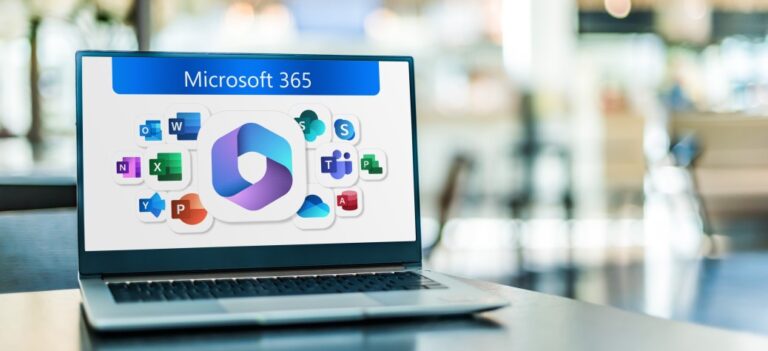In today’s digital landscape, cybersecurity is no longer just the responsibility of IT departments—it’s a crucial element of organizational culture. Developing a robust cybersecurity culture within your organization is essential for protecting sensitive data, maintaining customer trust, and ensuring compliance with regulatory requirements. Microsoft offers a comprehensive suite of tools and best practices to help businesses foster a strong cybersecurity culture.
Introduction to Cybersecurity Culture
A cybersecurity culture is defined by the collective mindset and behaviours of an organization’s employees towards protecting information and systems from cyber threats. It encompasses awareness, attitudes, and actions related to cybersecurity and ensures that every employee understands their role in safeguarding the organization.
Why Cybersecurity Culture Matters
- Enhanced Protection: A culture of cybersecurity awareness significantly reduces the risk of human errors, which are often the weakest link in security defences.
- Regulatory Compliance: Many regulations require organizations to implement comprehensive security measures, including employee training and awareness.
- Reputation Management: Building trust with customers and partners hinges on demonstrating a commitment to security.
Key Components of a Cybersecurity Culture
- Leadership Commitment: Leadership must visibly support and prioritize cybersecurity. This sets the tone for the entire organization.
- Employee Training and Awareness: Regular, comprehensive training ensures that employees are aware of current threats and know how to respond appropriately.
- Policy and Procedures: Clear, accessible policies and procedures help guide employee behaviour and provide a framework for consistent security practices.
- Technology and Tools: Utilizing advanced security tools to monitor, detect, and respond to threats is crucial in reinforcing a cybersecurity culture.
Know More About Our Microsoft 365 and Consulting Services
How Microsoft Can Help Build a Cybersecurity Culture
Microsoft Secure Score
Microsoft Secure Score provides a comprehensive assessment of your security posture. It offers recommendations for improving security and helps track progress over time. By using Secure Score, organizations can identify areas of weakness and ensure continuous improvement.
Microsoft Defender for Office 365
Protecting email and collaboration tools is vital. Microsoft Defender for Office 365 offers advanced threat protection against phishing, malware, and other email-borne attacks. Regularly updating employees on how to recognize and report suspicious emails reinforces a culture of vigilance.
Azure Active Directory (Azure AD)
Azure AD provides essential identity and access management tools. Implementing multi-factor authentication (MFA) and conditional access policies ensures that only authorized users can access sensitive information, reinforcing the importance of secure access practices.
Microsoft Information Protection (MIP)
MIP helps organizations classify, label, and protect data based on its sensitivity. Educating employees about data classification and the importance of handling sensitive information correctly is key to maintaining data security.
Microsoft Endpoint Manager
Managing and securing endpoints is critical, especially with the rise of remote work. Microsoft Endpoint Manager allows organizations to enforce security policies across all devices, ensuring consistent security practices are maintained.
Azure Sentinel
Azure Sentinel provides powerful security information and event management (SIEM) capabilities. It helps detect and respond to threats in real-time. Training employees on how to use Sentinel effectively ensures that they are prepared to respond to security incidents promptly.
Practical Steps to Foster a Cybersecurity Culture
- Conduct Regular Training and Drills
- Schedule regular cybersecurity training sessions for all employees.
- Conduct simulated phishing attacks to test and improve employee responses.
- Use interactive and engaging training materials to keep employees interested.
- Create Clear Policies and Procedures
- Develop and disseminate clear cybersecurity policies and procedures.
- Ensure policies are easily accessible and understood by all employees.
- Regularly review and update policies to address emerging threats.
- Encourage Open Communication
- Foster an environment where employees feel comfortable reporting security incidents without fear of repercussions.
- Provide multiple channels for reporting, such as hotlines or anonymous reporting tools.
- Recognize and Reward Good Practices
- Acknowledge employees who demonstrate strong cybersecurity practices.
- Implement a rewards program to incentivize adherence to security protocols.
- Leverage Microsoft security Tools
- Regularly review and utilize Microsoft Secure Score to assess and improve your security posture.
- Use Microsoft’s suite of security tools to protect email, identity, data, and devices.
Building a cybersecurity culture is an ongoing process that requires commitment from all levels of an organization. By leveraging Microsoft’s comprehensive security solutions and fostering a culture of awareness and vigilance, organizations can significantly enhance their cybersecurity posture. Start today by implementing these strategies and tools to ensure your organization is well-protected against evolving cyber threats. For expert assistance in building a robust cybersecurity culture, contact TRN Digital for comprehensive Microsoft security services.




